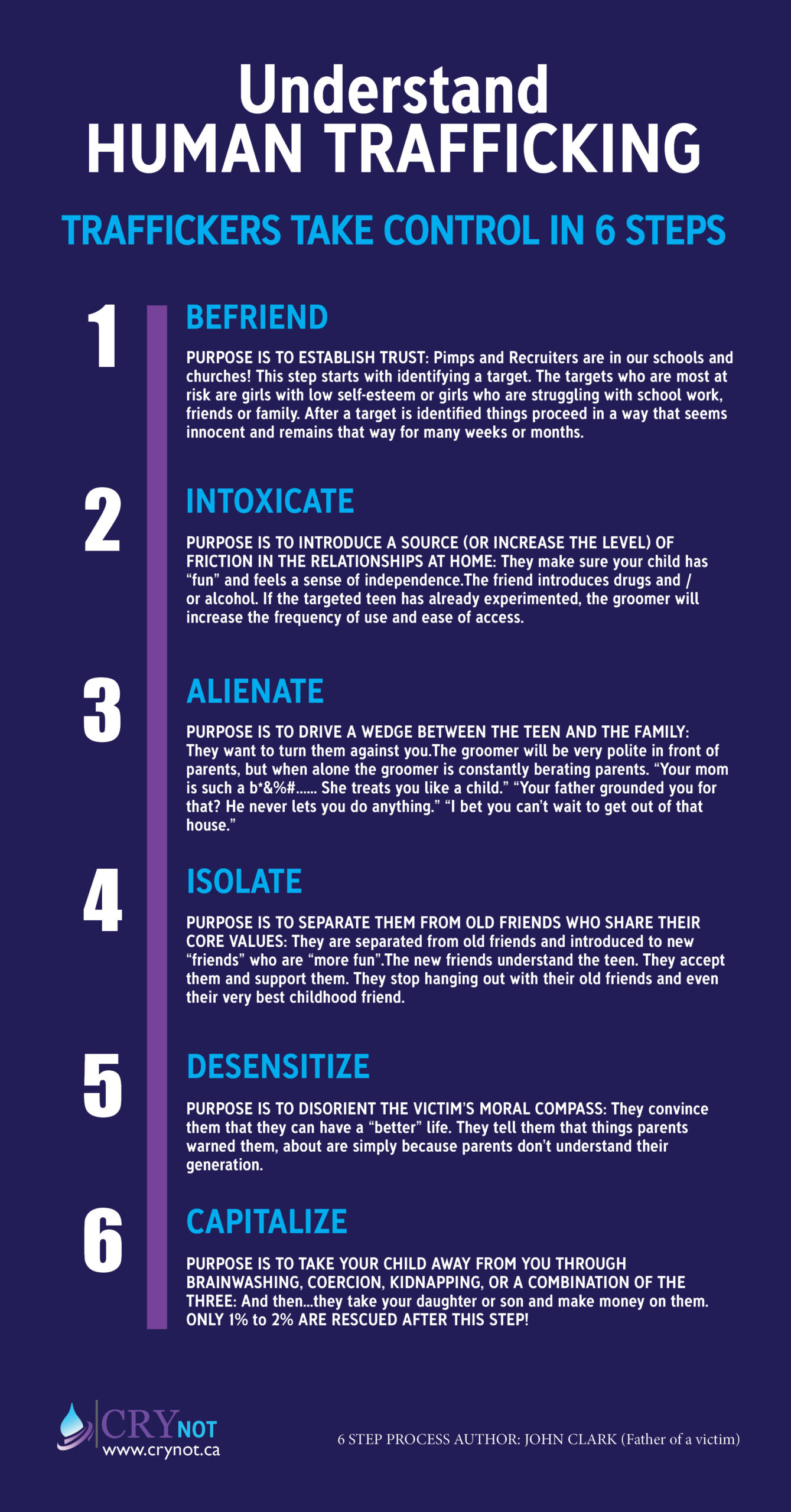An 18-year old female was in a five-year relationship with an individual who frequently assaulted her and controlled her phone. The victim was eventually pressured into providing sexual services to clients in hotels under her alleged boyfriend’s control and handed all of her earnings over to him. The trafficker used threats and fear of possible harm to control the victim.
A minor left a single-parent home due to conflict, stayed with friends until she befriended a young couple and decided to live with them. She was provided with drugs and alcohol and transported to different cities to provide sexual services against her will. The trafficker used physical assault and fear to control the victim.
A 22-year old female entered into a romantic relationship with an individual who introduced drugs to her and her friends. She was transported to an apartment by her alleged boyfriend, locked into the bedroom and forced, by sexual assault and threats, to provide sexual services to men. The victim became pregnant, was forced to continue working and was given drugs and alcohol to feed her addiction.
Two women in their early 20s and one 15 year old, were befriended by an individual who promised them high earnings and accommodation in luxury condos, in return for providing sexual services in an apartment. The individual began controlling the victims’ phones, taking most of their earnings and becoming increasingly violent and abusive. The trafficker had the victims work in various Canadian cities and held one of the victims at gun point as a means to threaten the victim.
How does this happen?
In Canada, sex trafficking (e.g. forced prostitution, etc.) is the most common form of human trafficking (although it’s common to experience more than one type of trafficking at a time).
Remember, all forms of human trafficking are illegal.
Sex trafficking usually begins with recruitment. An exploiter will use tactics to develop a relationship with you (called grooming). Grooming may include:
- lots of compliments
- attention and affection, where you may feel like the only person in the world
- special gifts and money
- a person telling you they love you, especially early in a relationship
While these things often feel nice and may seem like part of a normal relationship, after some time, exploiters will use these feelings to guilt you into doing “favours.” These favours usually start small (e.g. counting/carrying money) and grow bigger (e.g. performing sex acts). It’s very important to pay attention to how a favour makes you feel. If you’re uncomfortable, this is a warning sign.
The exploiter may use physical abuse, threats, lies and manipulation to coerce you into doing what they want. They often use fear and guilt to convince you to continue doing favours, like telling your parents/caregivers about something sexual you’ve done or calling the police and reporting something illegal you’ve done or helped with. They may also give less affection, compliments and gifts over time.
They may control who you talk to, what you’re allowed to wear, where you go and what you do. They may also take away things you need (e.g. your bank card, passport, ID, money, etc.) to prevent you from escaping.
You may consent to all, some or none of the activities the exploiter tells you to do. It’s important to remember that under the Criminal Code of Canada, you can’t consent to abuse. It’s common for exploiters to blame victims, but it’s important to remember that what’s happening to you is not OK and not your fault.

Remember, leaving a violent or abusive situation can be very difficult. It may take you more than one try to get the support you need. People who experience human trafficking are often hesitant to reach out because they’re afraid of punishment from the exploiter, arrest by police and shame from family and friends. It’s important to ask for support, create a safety plan and learn more about your options to find a way out. You deserve to feel safe, healthy and happy.
